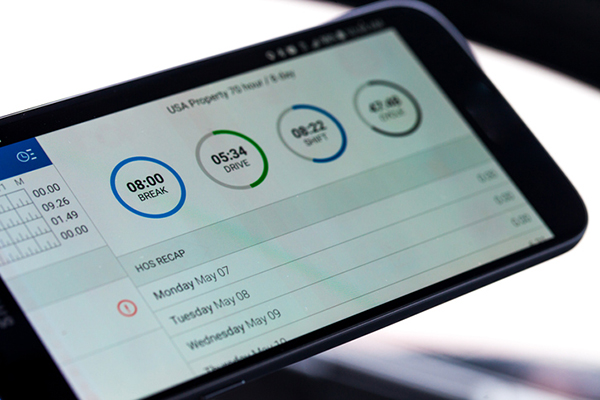FMCSA extends HOS COVID-19-related emergency declaration through May 15

The Department of Transportation’s Federal Motor Carrier Safety Administration (FMCSA) said yesterday that its national emergency declaration to provide hours-of-service regulatory relief to commercial vehicle drivers transporting emergency relief in response to the nationwide coronavirus (COVID-19) outbreak has been extended through May 15, 2020 or until the revocation of the Presidentially-declared COVID-19 national emergency.
This declaration was originally issued on March 13, following the Coronavirus Disease 2019 (COVID-19), the public health emergency declared by the office of the Health and Human Services Secretary, which is slated to expire on April 12, 2020.
“Because emergency conditions have not abated, FMCSA is extending Emergency Declaration No. 2020-002 and associated regulatory relief in accordance with 49 CFR 390.25,” said FMCSA. “The extension of the Emergency Declaration addresses national emergency conditions that create a need for immediate transportation of essential supplies, equipment and persons, and provides necessary relief from the FMCSRs [Federal Motor Carrier Safety Regulations] for motor carriers and drivers engaged in the transport of essential supplies, equipment, and persons.”
FMCSA added that through the extension of this emergency declaration, motor carriers and drivers that are providing direct assistance in support of COVID-19-related outbreaks are granted emergency relief, adding that driver assistance is in the form of transportation and other relief services that are provided by a motor carrier or its driver(s) for the restoring of essential services like medical care or essential supplies like food and fuel.
The expanded national emergency declaration is comprised of the following:
- Medical supplies and equipment related to the testing, diagnosis and treatment of COVID-19;
- Supplies and equipment necessary for community safety, sanitation, and prevention of community transmission of COVID-19 such as masks, gloves, hand sanitizer, soap and disinfectants;
- Food, paper products and other groceries for emergency restocking of distribution centers or stores;
- Immediate precursor raw materials—such as paper, plastic or alcohol—that are required and to be used for the manufacture of essential items;
- Fuel;
- liquefied gases to be used in refrigeration or cooling systems;
- Equipment, supplies and persons necessary to establish and manage temporary housing, quarantine and isolation facilities related to COVID-19;
- Persons designated by federal, state or local authorities for medical, isolation, or quarantine purposes; and
- Persons necessary to provide other medical or emergency services, the supply of which may be affected by the COVID-19 response
What’s more, FMCSA said that drivers operating under this emergency declaration are not exempt from state laws like speed limits and traffic restrictions relating to the operation of a motor vehicle if the alertness of a driver is impaired or is likely to become impaired due to fatigue or illness.
“Under Secretary Chao’s leadership, FMCSA is providing additional regulatory relief to our nation’s commercial drivers to get critically important medical supplies, food, and household goods to Americans in need,” said FMCSA Acting Administrator Jim Mullen in a statement made last month. “The nation’s truck drivers are on the front lines of this effort and are critical to America’s supply chain. We will continue to support them and use our authority to protect the health and safety of the American people.”
This emergency declaration is the first one FMCSA has issued on a national level and comes on the heels of President Trump issuing a national emergency declaration in response to the coronavirus.
When the emergency declaration was expanded on March 18, FMCSA said that it stipulates that direct assistance does not include routine commercial deliveries, including mixed loads with a nominal quantity of qualifying emergency relief added to obtain the benefits of the emergency declaration. And it added that to ensure continue safety on the nation’s roadways, the emergency declaration stipulates that once a driver has completed his or her delivery, the driver must receive a minimum of 10 hours off duty if transporting property, and 8 hours if transporting passengers.
This move by the FMCSA was soundly endorsed by the American Trucking Associations (ATA), specifically the new guidance on which operations are covered by the declaration, clarifying that fuel haulers are in fact included, as well as new guidance on “mixed load” operations.
“We thank Administrator Mullen and the Trump Administration for continued support to our industry as we deliver food, water, medicine, medical supplies, fuel and other essentials throughout this public health crisis,” said American Trucking Associations Vice President of Safety Policy Dan Horvath in a statement. “The men and women of the trucking industry are heroes who remain on the front lines in this national effort.”

Article Topics
3PL News & Resources
LM Podcast Series: Assessing the freight transportation and logistics markets with Tom Nightingale, AFS Logistics Investor expectations continue to influence supply chain decision-making XPO opens up three new services acquired through auction of Yellow’s properties and assets FTR’s Trucking Conditions Index weakens, due to fuel price gains LM Podcast Series: Examining the freight railroad and intermodal markets with Tony Hatch Supply Chain Stability Index sees ‘Tremendous Improvement’ in 2023 TD Cowen/AFS Freight presents mixed readings for parcel, LTL, and truckload revenues and rates More 3PLLatest in Logistics
LM Podcast Series: Assessing the freight transportation and logistics markets with Tom Nightingale, AFS Logistics Investor expectations continue to influence supply chain decision-making The Next Big Steps in Supply Chain Digitalization Warehouse/DC Automation & Technology: Time to gain a competitive advantage The Ultimate WMS Checklist: Find the Perfect Fit Under-21 driver pilot program a bust with fleets as FMCSA seeks changes Diesel back over $4 a gallon; Mideast tensions, other worries cited More LogisticsAbout the Author
Subscribe to Logistics Management Magazine

Find out what the world's most innovative companies are doing to improve productivity in their plants and distribution centers.
Start your FREE subscription today.
April 2023 Logistics Management

Latest Resources














